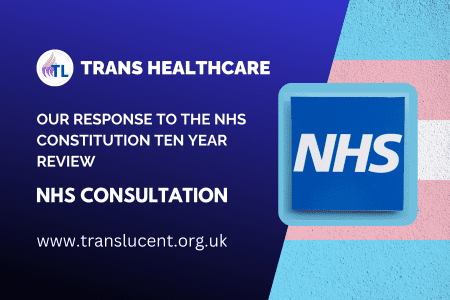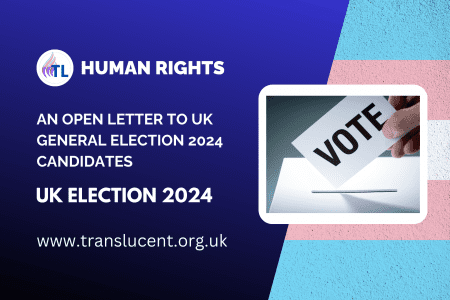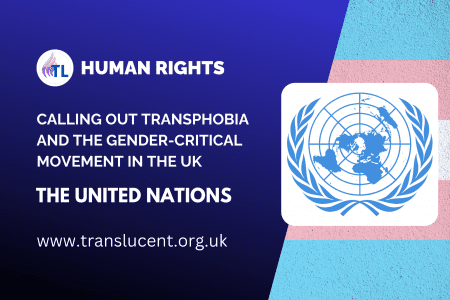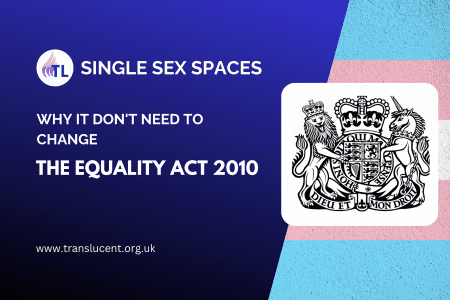The move by national and international sports federations to so-called ‘open’ categories is the latest trend in global transphobia. Portrayed to be “inclusive” in reality, it amounts to a ban for testosterone-suppressed trans women who wish to participate in meaningful sports competitions.
Organisations adopting an open transgender sports policy include Swim England, World Swimming (formerly FINA), British Cycling, Union Cycliste Internationale, British Triathlon, UK Athletics, World Athletics and several others.
For decades trans women athletes globally have won very little in the female category of sport, but because of the relentless persecution of trans women by gender-critical groups such as UK-based Fair Play for Women, the few trans women athletes there are (in the UK, just one at a national level) sadly… are banned in meaningful competition.
If transgender women regularly won events, there would undoubtedly be a case for looking again at the previous regulations and introducing an open sports category, but that is not the case. In the UK, a trans woman has never won an elite-level championship or significant title in any sporting event. Indeed, the only trans woman athlete to have won anything of significance whatsoever is Lia Thomas, a university athlete from the US.
Gender-Affirming Hormone Therapy (GAHT), in the case of trans women replacing testosterone with the female hormone estrogen, significantly reduces athletic performance, and numerous scientific studies have proven this.
Indeed, this fact is without a doubt.
The excellent book authored by Carole Hooven, PhD, ‘The Story of the Hormone that Dominates and Divides Us’, which I reviewed in July 2022, demonstrates the advantage of testosterone. Still, without its benefits, trans women cannot compete fairly against men in an “open” category.
Testosterone is a performance advancer, and studies have shown that athletes with higher levels of testosterone tend to perform better in various sports, including strength sports, power sports, and endurance sports. Testosterone can help athletes to build muscle mass, increase strength, and improve their ability to recover from workouts. It can also help athletes to stay motivated and focused during training.
The World Anti-Doping Agency (WADA) lists testosterone as a prohibited substance under the Anabolic Agents section of its Prohibited List. This means it is banned, both in and out of competition.
The average amount of testosterone in men averages between 10 – 35 nmol/L and for women 0.5 – 2.4 nmol/l. However, for testosterone-reduced trans women, many would be as low as 0.4 nmol/l. Indeed one of our team at TransLucent has a level of just 0.1nmol/l.
With such incredibly low testosterone levels, trans women have absolutely no chance of participating in meaningful competition in an open sport category when competing against men.
Sports governing bodies would not insist that natal females compete against men in an open category. Still, they expect trans women, invariably with lower testosterone than natal females, to do precisely that. I am aware of just one sports organisation that has recently placed an upper limit on natal females’ testosterone levels; UK Cycling Time Trials, and that itself is discriminatory to women suffering from PCOS because winning in sport is not all about biology – it’s about ‘advantages’ that take numerous forms.
For example, who would argue that practice, skill and dedication help to create successful athletes? Genetics, body type, fitness, mental toughness and confidence are features too. Money, training facilities and coaches dont that help? The ability to handle high pressure? Passion? The ability to learn from mistakes?
Sport is not all about testosterone, but it is certainly a key ingredient in athletic performance.
The premise of the counterargument from those wishing to exclude trans women is the retention of advantage because of male puberty and that testosterone reduction is not enough, but if that was the case, why were trans women athletes not incredibly successful when they were permitted to compete against natal females?
Human rights are fundamental to humanity.
They are the foundation of a just and equitable society and protect the most vulnerable members of our communities. It is a matter of fact that the transgender community fall within this group and are targeted, demonised and marginalised.
Without human rights, people would be subject to the whims of those in power, and there would be no recourse for those who are abused or mistreated.
At TransLucent, we believe introducing the open category in sports is highly discriminatory against trans women athletes. Various scientific studies have been published in recent months showing this is precisely the case. We hope sporting federations take note of them.
Meanwhile, the fight against transphobia…the prejudice against trans people continues.
There are answers to the issue of trans women competing in sports, but open categories are not the way.











 To provide the best experiences, we use technologies like cookies to store and/or access device information. Consenting to these technologies will allow us to process data such as browsing behaviour or unique IDs on this site. Not consenting or withdrawing consent, may adversely affect certain features and functions.
To provide the best experiences, we use technologies like cookies to store and/or access device information. Consenting to these technologies will allow us to process data such as browsing behaviour or unique IDs on this site. Not consenting or withdrawing consent, may adversely affect certain features and functions.